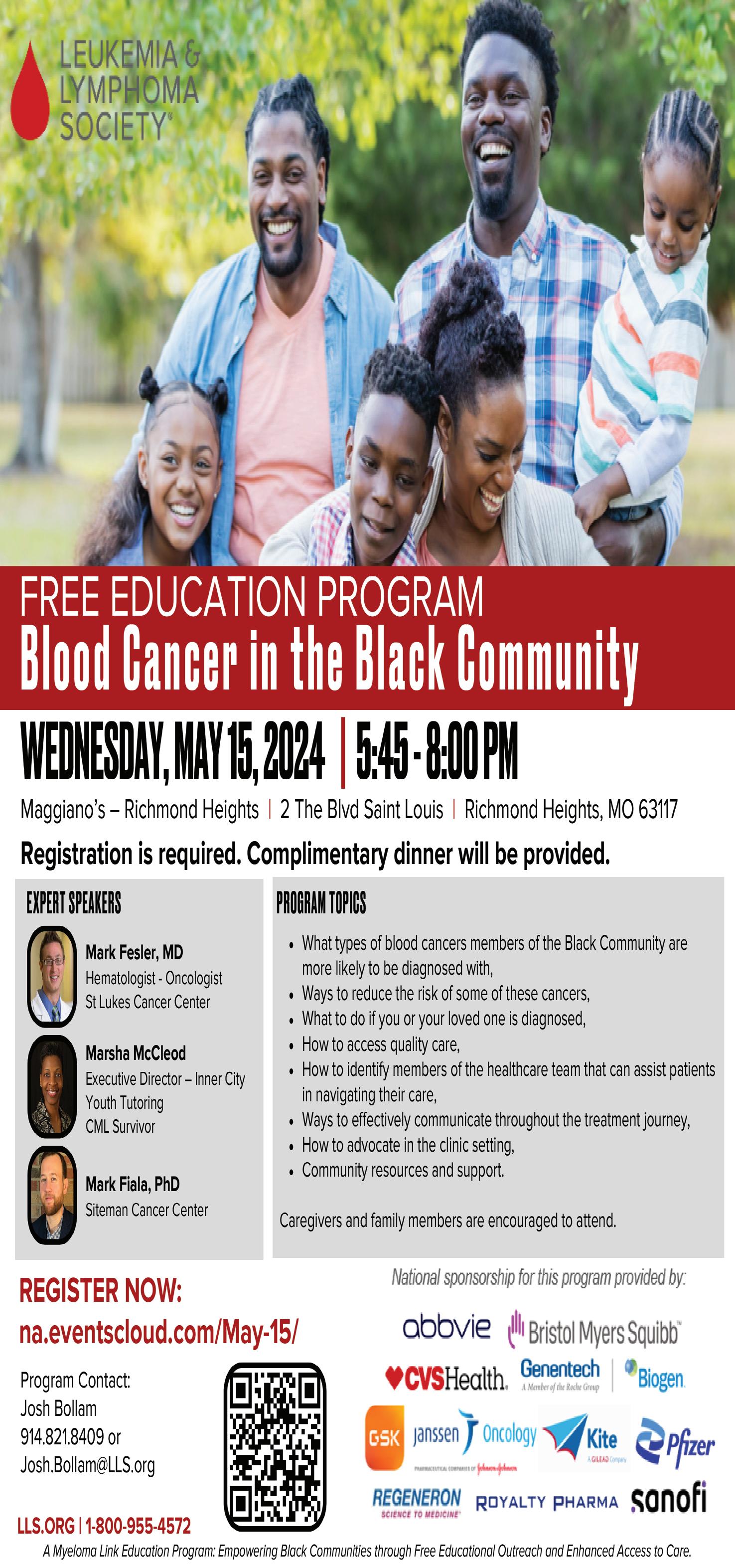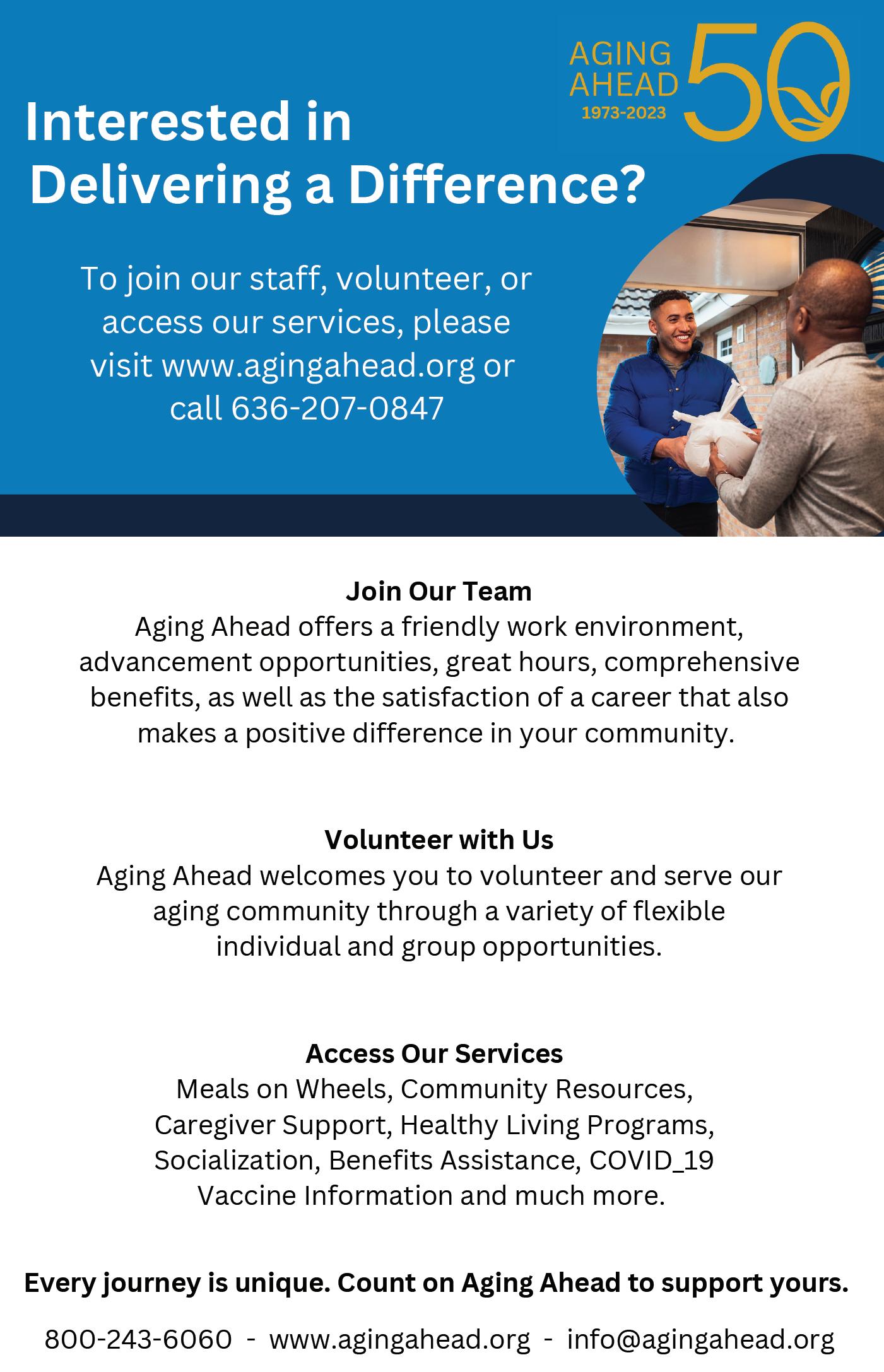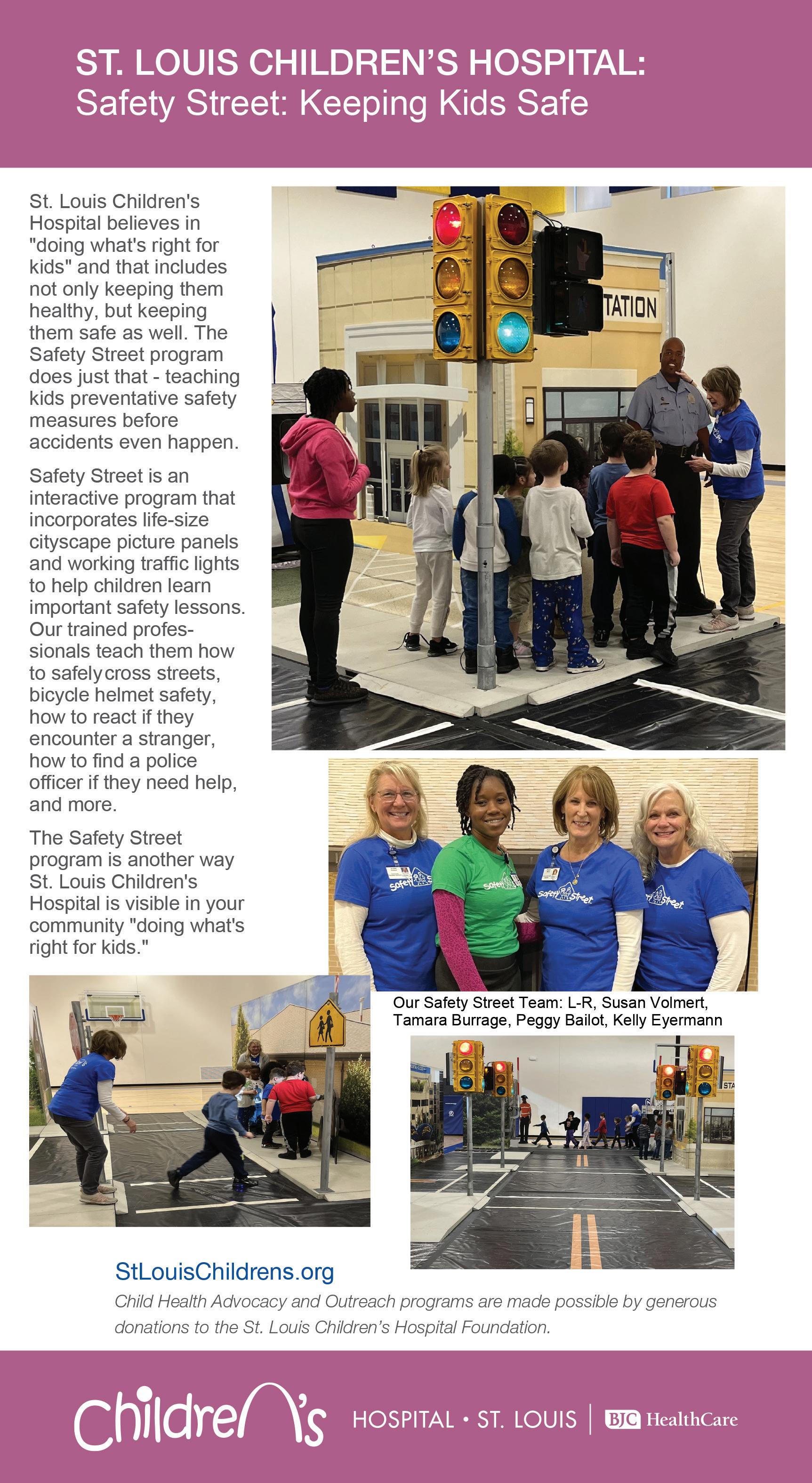

HealtH & Wellness HealtH & Wellness
Nine nifty ways to support mental wellness
(StatePoint) When it comes to overall wellness, focusing on mental health is critical, especially for older adults, according to experts.
“As people age, they may experience stressors such as serious illness, losing close friends and family members, managing life on a fixed income, and coping with concerns about their own mortality. While seniors may show resilience to these dimensions of vitality, when they’re compounded, these losses and stressors can result in a myriad of behavioral health issues, including depression, anxiety, stress, and insomnia,” says Dr. Lindsay Evans-Mitchell, board certified adult psychiatrist and behavioral health medical director for Cigna Healthcare’s Medicare Advantage business.
Dementia, which includes memory loss and language difficulties, is another issue often more pronounced with age, and in earlier stages, it can often mimic some symptoms of depression.

Fortunately, Dr. EvansMitchell says making healthy choices can improve your quality of life, including your overall mental well-being, and potentially reduce your
risk of both depression and dementia:
Practice good nutrition: There is evidence that plant-based diets are associated with better

health, including better emotional health. That’s another reason to add more green, leafy vegetables to your diet.
Exercise: Regular
exercise can positively affect cognitive ability.
If you have a Medicare Advantage (MA) plan offering access to a fitness program at no extra cost, then make sure to
take advantage of it. You can learn about Cigna Healthcare’s MA plans at cignamedicareinformation. com.
Hydrate: Drink plenty of water. Dehydration can negatively affect cognitive performance. Even mild dehydration can drain energy and cause fatigue.
Enjoy some sunshine: Sunlight provides needed vitamin D. Getting sunshine may increase your serotonin and help you stave off depression caused by Seasonal Affective Disorder, or SAD. Also, according to the Alzheimer’s Association, exposure to vitamin D can lower dementia risk by as much as 40%. Of course, make sure to take proper precautions, such as wearing a hat, using sunscreen, and wearing eye protection that shields against UV light.
Get plenty of rest: Older adults need seven to nine hours of sleep

What expecting mothers needs to know about their heart
(StatePoint) Over the last three decades, the United States has seen pregnancy-related deaths rise nearly 140%, and heart disease continues to be the leading cause. Furthermore, women who have prenatal complications, such as high blood pressure or gestational diabetes, have a significantly higher risk of heart disease and stroke later in life, yet many are not getting the care they need.
According to the National Collaborative for Infants & Toddlers (NCIT), an advocacy collaborative working to pass policies that make it possible for all expectant parents, infants and toddlers to thrive, the United States is in the midst of a maternal health crisis. This sentiment is echoed by “Opportunities in the Postpartum Period to Reduce Cardiovascular Disease Risk Following Adverse Pregnancy Outcomes,” a new scientific statement from the American Heart Association (AHA), which was recently published in “Circulation,” the Association’s flagship peer-reviewed journal. “Healthcare professionals and the public alike often think of heart disease as a man’s disease. While heart disease is also the leading cause of death for women, fewer than 50% of women identify it as such. This is creating a dangerous situation for women, especially during higher-risk periods of their life, as their symptoms often go undiagnosed and untreated,” says Dr. Sadiya

S. Khan, one of the statement’s authors. “As adverse pregnancy outcomes become increasingly common, it’s important for women to be aware of their risk for heart disease, the actions they can take to lower their risk if they experience pregnancy complications, and for birth justice policy interventions to take place that will improve their care during their pregnancy, and throughout their lifetimes.”
Many women face significant barriers in accessing primary care after delivery. Up to 40% of women do not access postpartum care, and only
an estimated 18% to 25% of postpartum patients with pregnancy complications or chronic health conditions are seen by a primary care clinician within 6 months of delivery. Women of color, and women in rural areas are disproportionately impacted by barriers to care that could leave them vulnerable to further health complications.
n “As adverse pregnancy outcomes become increasingly common, it’s important for women to be aware of their risk for heart disease.”
– Dr. Sadiya S. Khan
According to NCIT,

policy interventions such as expanded Medicaid coverage for 12 months postpartum in all states, expanded income eligibility for health insurance programs, paid family and medical leave, community-based doulas, and evidence-based home visiting programs can help promote ethnic, racial and socioeconomic birth equity, and help ensure all expectant and new parents
have access to insurance, care and the supports needed to thrive.
Also supporting women in all stages of life, and all stages of pregnancy is Go Red for Women, an AHA initiative empowering women to take charge of their heart health. One way they can do that, according to the initiative, is by understanding their heart disease risks, and coming to their doctors’ appointments prepared to discuss their personal and family health history and other factors that could impact their chance of a healthy pregnancy.
Women can also proactively manage their
heart disease risk factors during pregnancy and after delivery using the AHA’s Life Essential 8 cardiovascular health metrics as a framework. These include: eating better, being more active, quitting tobacco, getting healthy sleep, managing weight, controlling cholesterol, managing blood sugar and managing blood pressure.
“Stemming the tide of this maternal health crisis is vital for families, and it starts with bringing light to the tremendous need for better delivery of care to moms and soon-to-be moms with a focus on heart health,” says Dr. Khan.

Protecting Americans’ access to high-quality health care
(StatePoint) Accepting
Medicare is becoming increasingly unsustainable for physicians, which has resulted in many practices refusing to take new Medicare patients, or even to shutter their doors. At the same time, millions of additional Americans are projected to rely on Medicare in the coming years. With a 3.37% reduc-
Mental
Continued from D1
tion to Medicare imposed at the start of this year, the American Medical Association (AMA) says that reforms are needed to protect millions of Americans’ access to their physicians.
“After three consecutive years of Medicare cuts, physicians and patients are at a crossroads. Physicians have faced reductions in Medicare payments each
each night, according to the National Institutes of Health. People who get six hours of sleep or less a night are at greater risk of developing dementia later, the organization says. Additionally, poor sleep could be a sign of depression and should be discussed with your doctor.
of the past four years on top of steeply rising practice costs and the burdens of nearly four years of COVID-19. Continuing down this road is unsustainable for many physicians, particularly those in smaller private practices,” says Jesse M. Ehrenfeld, MD, MPH, president of the AMA.
An AMA analysis of Medicare Trustees data
finds that Medicare physician payments increased by just 0.4% a year between 2001 and 2023.
Meanwhile, the cost of running a medical practice—including office rent, employee wages and insurance premiums—went up by 47% during that same period. Today, physicians are the only Medicare providers who do not receive an annual inflationary
update, hindering their ability to adequately pay staff, purchase new equipment and invest in their practices.
Struggling physician practices nationwide have already been forced to make such tough choices as refusing to accept Medicare, absorbing their practices into larger companies, and even shutting down operations
entirely. As a result, some Medicare patients—like Dr. Ehrenfeld’s own parents, who recently struggled to find a new physician—will increasingly be left without access to high-quality care, with the largest burden on rural and underserved areas. New cuts will erode this access even further.
To learn more, visit FixMedicareNow.org.
Pick up a hobby: Hobbies like gardening, cooking and solving puzzles can help improve your memory and your physical and mental health.
Stay away from harmful substances: Dealing with behavioral health issues in unhealthy ways, such as abusing prescription or illicit drugs or alcohol, will only worsen the situation. According to the National Institutes for Health, research shows heavy alcohol use can increase the risk of both dementia and depression.
Be social: Isolation can lead to depression, which only worsened for many during the COVID-19 pandemic. Reach out to friends and family in person, via video chat, or over the telephone.
Find help if you need it: Keep your regular medical appointments, and don’t hesitate to seek additional help from your network,
if you need it. This may take the form of a financial advisor, a clergy member, or a mental health professional. Medicare generally covers the cost of behavioral health services, including depression and addiction treatment, as well as talk therapy. Virtual services are often available to those living in rural areas. And if you’re
experiencing a crisis that includes suicidal thoughts, call 988 immediately.
“For some older adults, seeking help can be difficult,” says Dr. EvansMitchell. “But getting help is a sign of strength, not weakness. There’s no benefit to suffering in silence when help to improve your life is within reach.”


